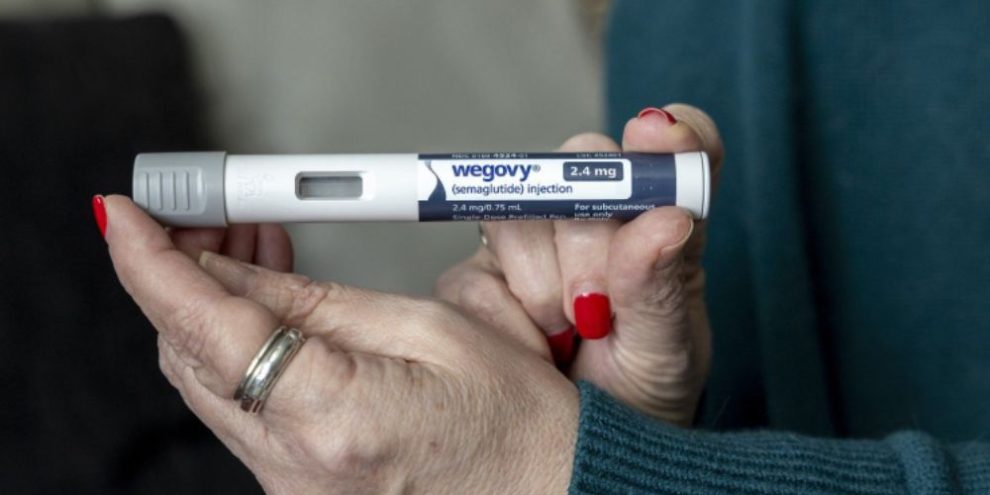
Medications that have transformed the treatment of obesity may also help people drink less alcohol, according to new government-funded research.
The study was small — just 48 adults — and lasted just over two months, so it’s not the final word. Experts say it’s not yet clear how safe these drugs are for people who don’t need to lose weight.
But the results add to evidence from animal studies and reports that people are finding drugs like Ozempic and Wegovy helpful to manage cravings, not just for food, but also for tobacco and alcohol. Scientists are studying these drugs in smokers, people with opioid addiction and cocaine users.
“This is such promising data. And we need more of it,” said study co-author Dr. Klara Klein, of the University of North Carolina at Chapel Hill, who treats patients with diabetes and obesity. “We frequently will hear that once people start these medications that their desire to drink is very reduced, if not completely abolished."
The drugs, known as GLP-1 receptor agonists, work by mimicking hormones in the gut and the brain to regulate appetite and feelings of fullness. The new study looked at one of these drugs, semaglutide, which is the drug in Ozempic and Wegovy.
The research, published Wednesday in the journal JAMA Psychiatry, was funded by the National Institute on Alcohol Abuse and Alcoholism, part of the National Institutes of Health.
There are already three medications approved to treat alcohol use disorder, so until larger studies can confirm the findings, people should talk to their doctor about what's already available, said lead author Christian Hendershot, an addiction researcher at University of Southern California.
Barrie's News Delivered To Your Inbox
By submitting this form, you are consenting to receive marketing emails from: Central Ontario Broadcasting, 431 Huronia Rd, Barrie, Ontario, CA, https://www.cobroadcasting.com. You can revoke your consent to receive emails at any time by using the SafeUnsubscribe® link, found at the bottom of every email. Emails are serviced by Constant Contact
For the new study, researchers recruited people who reported symptoms of alcohol use disorder, such as difficulty controlling their drinking, but weren’t actively seeking treatment for it.
First, each person came to a lab where they were served their favourite alcoholic beverage and could drink as much as they wanted over two hours.
Then, researchers randomly assigned half the people to get a weekly injection of semaglutide. The other half got sham injections.
For nine weeks, everyone kept track of their drinking habits and their desire for alcohol. A lab visit with their favourite alcohol was repeated at the end of the study.
During the last weeks of the study, nearly 40% in the semaglutide group reported no heavy drinking days compared with 20% in the placebo group. And in the final lab test, the semaglutide group drank roughly half the amount, on average, compared to those who got the placebo.
Everyone in the study was overweight. It's unclear how safe the drugs would be for a person of normal weight, Klein said.
Smokers in the study who got the semaglutide also cut back on cigarettes, noted Luba Yammine of UTHealth Houston, who is leading other research on GLP-1 drugs for people who want to quit smoking. The finding is promising but more data is needed, Yammine said.
The study “provides additional important information on the potential role of this new class of medications” in treating certain addictions, said Dr. Lorenzo Leggio, an NIH researcher who is leading a 20-week trial of semaglutide for alcohol use disorder now underway in Baltimore.
“It is important to keep in mind that we need larger randomized clinical trials to confirm these findings,” Leggio said.
The Associated Press Health and Science Department receives support from the Howard Hughes Medical Institute’s Science and Educational Media Group and the Robert Wood Johnson Foundation. The AP is solely responsible for all content.





